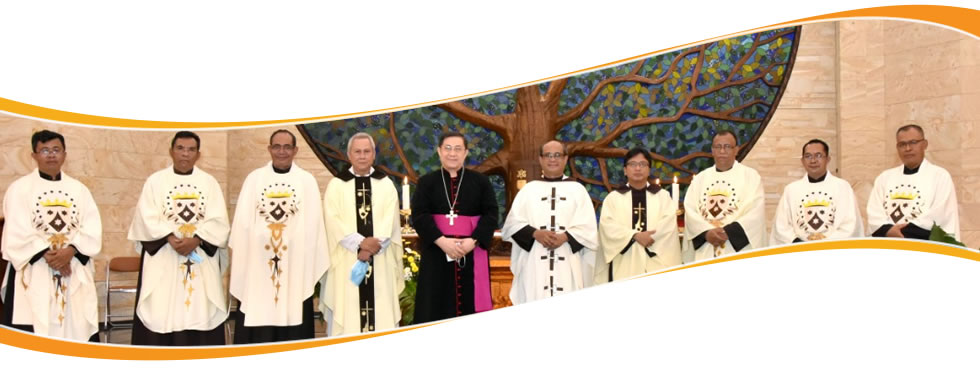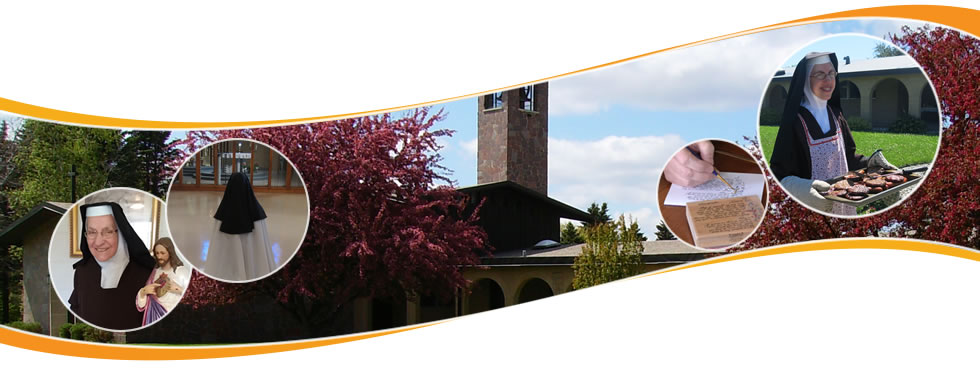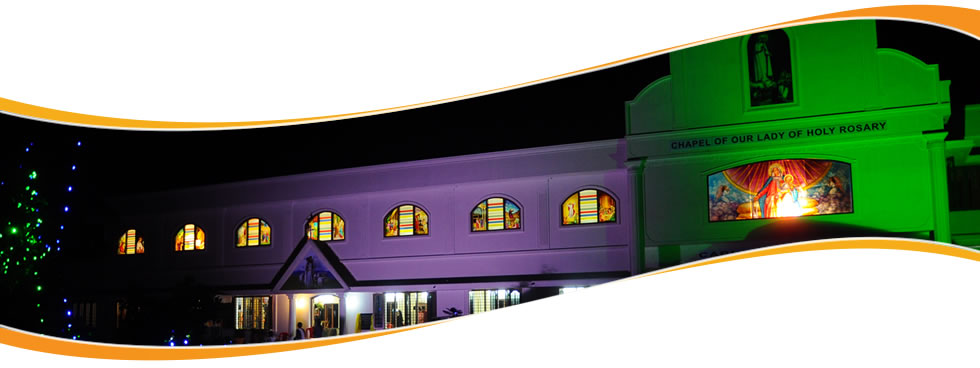by Fr. Patrick Thomas McMahon, O.Carm.
Lay Carmelites seek God's presence in prayer while living an active life in the world. This duality of contemplative prayer and active ministry was modeled by the first Carmelites who lived as hermits on Mount Carmel, then later became mendicants in the cities of Europe.
Carmel is about Community
The next characteristic I want to talk about is the fact that Carmel is communitarian. One of the most frightening phenomena of the twentieth century has been the breakdown of community at almost every level of society. Pope John Paul II repeatedly wrote and spoke on this subject. And he was particularly critical of North American Society on this account, and not without reason. Both the United States and Canadian peoples tend to be individualists. We are very strong on individual rights. And we are suspicious of any grouping that demands a loyalty over our own personal interests. Two hundred years ago when the Frenchman Alex de Tocqueville visited the United States he characterized the then new nation as a nation of individualists. He saw this as one of the great strengths of American society. But it is also one of the great weaknesses. Indeed individualism has become a cancer that has eaten our cultural soul from within. Look at the problem. People are no longer interested in the common wheal. They’re interested only in their own personal good. The most frightening breakdown of community has been the collapse of the family. Most families no longer eat a meal together daily. And where there is no supper table there is no longer any family. People take their food from the common table and move it to the television, to their own room, to the computer, to the patio. They read the paper or a book while eating. One person eats now; another in a half hour; the third ate an hour ago. We have televisions in different rooms. We have our dens to escape to. We have our own workshop or sewing room. And while it is good for each of us to have our own space, it eats away our soul for us to have no common time and no common space whatsoever with our families.
Carmel must be committed to restoring community on every level, in our families, in our Lay Carmelite groups, and in our parishes. Our parishes, are they communities? Maybe the liturgies are lively, or our social outreach is strong, but do people know each other? Do they have a sense of belonging to one another? Can they turn to one another for help, or advice or encouragement? For many, the Church is simply a place where you go; it no longer is a group of people to whom you belong. And that is not the Church founded by Jesus Christ. There are those for whom the Church is a private affair, their time alone with the Lord. They come early and they silently kneel. They bury their face in their hands during the liturgy. They remain afterwards gazing at the tabernacle. And they leave without ever having spoken a word to anyone. They think they’ve encountered Jesus in the Eucharist, but unless they have met their sister and their brother in charity they have replaced the Eucharistic Lord with a Jesus of their own imagination. Until we understand that the Church itself is the Body of Christ, we will not authentically encounter Jesus in the Eucharist. Lay Carmelites must be an invigorating force for community within their parishes, even as the friars and nuns are called by their vocation to be a witness to the value of community in the larger Church.
As a priest, I am frightened by how few people really know Jesus. So many have invented a fantasy figure of their own devotion whom they call Jesus, but they couldn’t find ‘The Sermon on the Mount’ if they had a reserved seat for it. The Jesus whom they have invented is simply an imaginary figure who reinforces their own opinions and whom they can conveniently tuck away when it is time to get on with the tough decisions of daily life. As Catholic Christians we know that there is an essential connection between Jesus in the community of the faithful and Jesus present in the Eucharistic banquet; between Jesus present in the least of his brothers and sisters, and Jesus speaking in the Scriptures. It is one Christ.
As Catholic Christians our life takes its meaning not from our individualism but from our belonging to a community of people who together belong to the Lord. There is no salvation for those who remain individuals. Salvation comes, we Catholics believe, from being in the bark of Christ in the community of the faithful. So Carmel is essentially communitarian. Carmelites, because of our origin as hermits, value silence and solitude, but we do not value individualism. Our roots are among a community of hermits. Notice: a community of hermits. We too, while we are happy and content to be alone much of the time, we come together to pray, we come together to encourage one another, and we come together to help each other follow Jesus because no one can follow Jesus alone. Carmel is communitarian. We are about communities. Part of our mission is to form communities. And Lay Carmelites must be rooted in their communities, faithful to their communities, praying with their communities, in touch with each other, supportive of one another. When Lay Carmelites move somewhere where there is no Lay Carmelite community they need to start one. We need to find other good Catholic men and women and invite them into community, into the community of Carmel.
Scott Peck, the pop psychiatrist, writes and writes well that: ‘The future of the world is community’. And he’s right. It is our future, our only future. It was the plan of Jesus when he established the Church, and it was the plan of those first hermits on Mount Carmel, and it is our plan today. We must be a community of Carmelites. We have no future if we’re not a community and there is no future if we do not learn how to be a community.
































